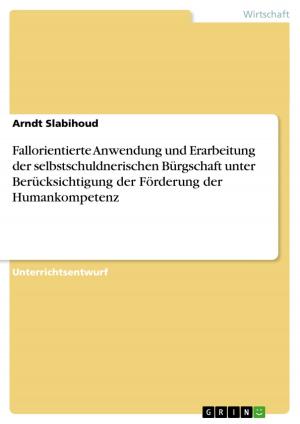Similar Social Stratification and Stereotypes in 'Oliver Twist' by Charles Dickens and Contemporary Pakistan
Fiction & Literature, Literary Theory & Criticism, British| Author: | Uzma Khan | ISBN: | 9783668039551 |
| Publisher: | GRIN Verlag | Publication: | September 2, 2015 |
| Imprint: | GRIN Verlag | Language: | English |
| Author: | Uzma Khan |
| ISBN: | 9783668039551 |
| Publisher: | GRIN Verlag |
| Publication: | September 2, 2015 |
| Imprint: | GRIN Verlag |
| Language: | English |
Essay from the year 2015 in the subject English Language and Literature Studies - Literature, , course: ENGL 499, language: English, abstract: This paper presents the subject of the class system in Charles Dickens' novel 'Oliver Twist' as compared to the social stratification in Pakistan today. The investigation centers on the settings and symbolism in the novel which uncovers the social stratification during the Victorian age and traces the commonalities of class society between the Victorians and contemporary Pakistani society. Dickens showcases that poverty and vice are hereditary traits and the poor are inherently bad in conformity with the stereotypes of Victorian Britain. Albeit it is blatant in the novel that poverty and vice are fundamentally connected but the label of bad is supposedly attached with the poor. The stereotypes in the Victorian British society depicted by Dickens in Oliver Twist are similar to the stereotypes upheld in modern day Pakistan. Class differences in Pakistan imply certain notions which are comparable to that of the Victorian society portrayed in the novel. The paper accentuates the theoretical framework of the Marxist approach being applied on the primary text to underline the unquestionable proposition of colonialism of the British Empire and class divisions as an outcome of this process. Based on the critical textual analysis of the novel, I will assess the applicability of Marxist idea of class stratification and my goal is to trace the commonalities in the social stratification and stereotypes of contemporary Pakistan and Victorian Britain.
Essay from the year 2015 in the subject English Language and Literature Studies - Literature, , course: ENGL 499, language: English, abstract: This paper presents the subject of the class system in Charles Dickens' novel 'Oliver Twist' as compared to the social stratification in Pakistan today. The investigation centers on the settings and symbolism in the novel which uncovers the social stratification during the Victorian age and traces the commonalities of class society between the Victorians and contemporary Pakistani society. Dickens showcases that poverty and vice are hereditary traits and the poor are inherently bad in conformity with the stereotypes of Victorian Britain. Albeit it is blatant in the novel that poverty and vice are fundamentally connected but the label of bad is supposedly attached with the poor. The stereotypes in the Victorian British society depicted by Dickens in Oliver Twist are similar to the stereotypes upheld in modern day Pakistan. Class differences in Pakistan imply certain notions which are comparable to that of the Victorian society portrayed in the novel. The paper accentuates the theoretical framework of the Marxist approach being applied on the primary text to underline the unquestionable proposition of colonialism of the British Empire and class divisions as an outcome of this process. Based on the critical textual analysis of the novel, I will assess the applicability of Marxist idea of class stratification and my goal is to trace the commonalities in the social stratification and stereotypes of contemporary Pakistan and Victorian Britain.















